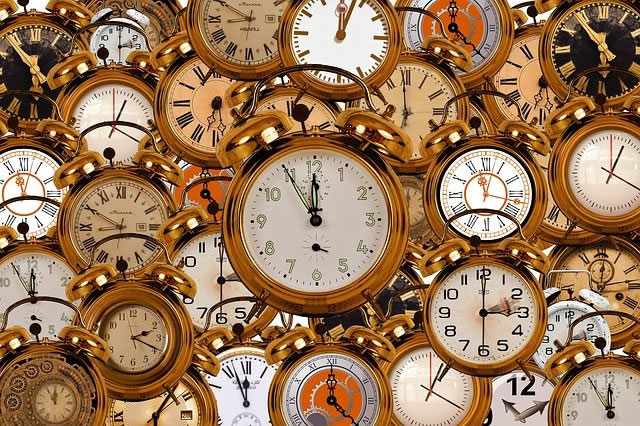先日から「How to escape the tyranny of the clock -「時計の支配から逃れる方法」を読んでいます。

・「時計の支配から逃れる方法」(1)
・「時計の支配から逃れる方法」(2)
・「時計の支配から逃れる方法」(3)
If all that existed was the now, we couldn’t prepare for or anticipate anything in the future.
もし「今」しか存在しなければ、未来に対しての準備も予測もできない。
“I can’t imagine how you would plan your goals, or how you would perceive yourself as a temporal being,”
「目標をどう設定するか、自分を現世の存在としてどう認識するか、想像もつきません」
temporal「現世の、世間的な、(空間に対して)時間的な、一時の、俗世の、世俗的な、時を表わす、時制の、こめかみの、側頭の」。
says Johanna Peetz, a psychologist at Carleton University, in Ottawa, Canada.
と語るのはカナダ・オタワにあるカールトン大学の心理学者、ヨハンナ・ピーツ氏。
Time also plays a vital role in all our mental and social constructs, from understanding causality, to spoken language, social cues and more.
また時間は因果関係の理解、言語、社会的合図など、私たちの精神的、社会的な構築物全てにおいて重要な役割を担っている。
Think of a casual look that if continued, becomes a stare.
例えばそれを続けたら凝視になるような、カジュアルな視線。
“Time is an intrinsic part of how our biological systems, cognition, and social systems function,”
「時間は私たちの生体システム、認知、社会システムを機能させる本質的な部分です」
says Valtteri Arstila, who studies the philosophy and psychology of time at the University of Turku, Finland.
と、フィンランドのトゥルク大学で時間の哲学と心理学を研究するヴァルテリ・アルスティラ氏。
“You cannot live without it, and you would not want to do it either.”
「時間なしで人は生きていけませんし、そうしたくもないでしょう。」
But while we can’t give up the concept of the passage of time at such fundamental levels, we may be able to wean ourselves off our obsession with it.
だがこのような根源的レベルでの概念は捨てられないとしても、時間への執着は断ち切れるかもしれない。
wean off「放棄する、やめさせる、引き離す、引きはがす」。
After all when we talk about being ruled by time, we are really referring to “clock time”, an entirely human invention.
結局時間に支配されるいうのは、人間が発明した「時計の時間」を指しているのだから。
チラ見をずーっと続けたら、それは「凝視」になる。
時間を長く行うと違う意味になることがある・・・これは時間の役割の分かりやすい例えだなあと思いました。
また友達や恋人や家族など、長い時間を一緒に過ごすと特別な絆が生まれますが、これも時間の役割の一つなのでしょうね。
「時を重ねる」という表現もありますし、時間を共有することは関係構築の方法でもあるのかと腑に落ちました。
理由は単純明快!「少ないコストでしっかり楽しく学べるから」。
私自身の経験(高機能でビックリ)をびっしり書いていますので、良かったら読んでみてください。
下のバナーからどうぞ!






